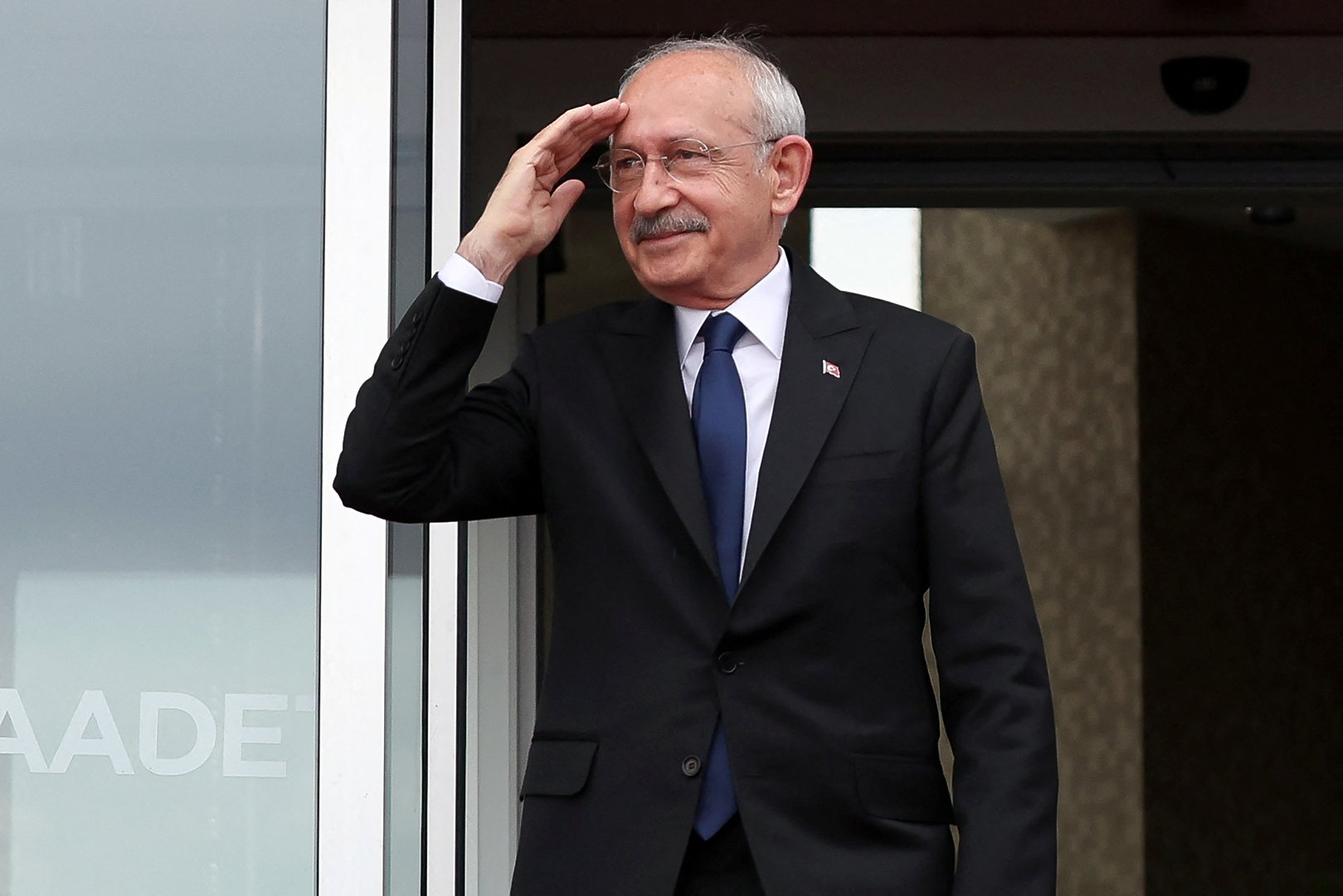Turkish opposition leader Kemal Kilicdaroglu emerged on Monday as the main challenger to President Tayyip Erdogan in landmark elections expected on May 14, after a six-party alliance picked him as expected as its presidential candidate.
Kilicdaroglu, 74, head of the country’s second-biggest party, aims to emerge from Erdogan’s shadow and oust the president after a two-decade reign that has transformed the NATO member country and major emerging market economy.
“Our table is the table of peace. Our only goal is to take the country to days of prosperity, peace and joy,” said Kilicdaroglu, chairman of the Republican People’s Party (CHP).
Polls suggest that the presidential and parliamentary votes in two months will be tight, with the opposition bloc running slightly ahead of the governing alliance.
The bloc has vowed to reverse many of Erdogan’s policies on the economy, civil rights and foreign affairs in what many see as the most consequential election in the republic’s 100-year history.
A former civil servant, Kilicdaroglu could take advantage of years of economic crisis and soaring inflation, as well as last month’s devastating earthquakes in the south that killed more than 46,000 people brought criticism of the state’s response.
Yet some doubt that the feisty former economist who climbed the ranks as a corruption fighter can defeat Erdogan, Turkey’s longest-serving leader whose campaigning charisma has helped achieve more than a dozen election victories.
Voters will decide not only who leads Turkey but how it is governed, where its economy is headed and what role it may play to ease conflict in Ukraine and the Middle East.
The six-party Nation Alliance’s political programme
LEGISLATIVE AND EXECUTIVE REFORMS
The main promise of the Nation Alliance is to return Turkey to a parliamentary system, which they say will be “stronger” than the one in place before the country switched to the current presidential system in 2018.
They would bring back the position of prime minister, which was abolished by Erdogan through a referendum in 2017.
They also promise to turn the presidency into an “impartial” role with no political responsibility. Among their pledges is abolishing the president’s right to veto legislation and issue decrees.
The president, who will sever ties to any political party, will only serve one seven-year term and be banned from active politics afterwards.
The parliament’s authority to back out of international agreements will be enshrined in the constitution. It will also have more authority over planning the government budget.
In public administration, boards and offices under the presidency will be abolished and their duties will be transferred to relevant ministries.
ECONOMY
The Nation Alliance has promised to lower inflation, running at 55% in February, to single digits within two years and restore the stability of the Turkish lira, which has lost 80% of its value in the past five years.
They will ensure the independence of the central bank and roll back measures such as allowing the cabinet to select the governor.
The alliance will prepare legislation to allow parliament to pass laws on the bank’s mission, operational independence and high-level appointments.
They have promised to end policies that interfere with a floating exchange rate, including a government scheme that protects lira deposits against currency depreciation.
They have pledged to cut government expenditure by reducing the number of planes used by the presidency, the number of vehicles used by civil servants, and selling some state buildings.
They will review all projects under public-private partnerships.
They will review the Akkuyu Nuclear Power Plant Project and renegotiate natural gas contracts, reducing the risk of dependence on certain countries for gas imports.
FOREIGN POLICY
The opposition bloc will adopt the slogan of “Peace at Home, Peace in the World” as the cornerstone of Turkey’s foreign policy.
While promising to “work to complete the accession process” for full membership in the European Union, the alliance has vowed to review Turkey’s refugee deal of 2016 with the EU.
They have also promised to establish relations with the United States with an understanding of mutual trust and to return Turkey to the F-35 fighter jet program.
They say Turkey would maintain relations with Russia “with an understanding that both parties are equal and strengthened by balanced and constructive dialogue.”
LEGAL REFORMS
The six parties have pledged to ensure the independence of the judiciary, which is currently seen as under the control of Erdogan and his allies.
Judges’ willingness to abide by Constitutional Court and European Court of Human Rights rulings will be considered when evaluating promotions.
Judges and prosecutors who cause rights violations that lead Turkey to be fined at the two courts will be made to pay the fine. Measures will be taken to ensure courts quickly implement rulings by the two high courts.
They have promised to reform the Board of Judges and Prosecutors and split it into two entities, which they say will be more accountable and transparent.
They will also reform the structure and elections processes for higher courts, such as the Constitutional Court, the Court of Cassation, and the Council of State.
The parties have promised to ensure that pre-trial detentions are the exception, a measure that critics say is abused under Erdogan’s rule.
They will strengthen freedom of expression and broaden the right to hold demonstrations.







Click here to change your cookie preferences